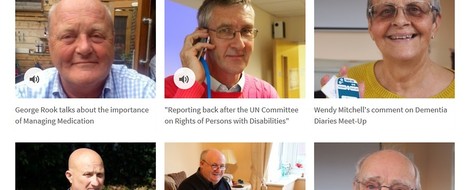Your podcast discovery platform
Curious minds select the most fascinating podcasts from around the world. Discover hand-piqd audio recommendations on your favorite topics.

piqer for: Boom and bust Health and Sanity Global finds Doing Good
Danielle Batist is an experienced freelance journalist, founder of Journopreneur and co-founder of the Constructive Journalism Project. She lived and worked all around the globe and covered global and local stories of poverty, exclusion and injustice. Increasingly, she moved beyond ‘problem-reporting’ to include stories about the solutions she found. She witnessed the birth of the new nation of South Sudan and interviewed the Dalai Lama. She reported for Al Jazeera, BBC and the Guardian and regularly advises independent media organisations on innovation and sustainability. She loves bringing stories to the world and finding the appropriate platforms to do so. The transformation of traditional media fascinates rather than scares her. While both the medium and the message are changing, she believes the need for good storytelling remains.
The Dementia Diaries
I recently watched a BBC documentary by a filmmaker following his grandfather’s life with dementia from the early onset stages. It reminded me of a powerful audio project called Dementia Diaries, which brings together people’s diverse experiences of living with dementia as a series of audio diaries. It serves as a public record and a personal archive that documents the day-to-day lives of people living with dementia, with the aim of prompting a richer dialogue about the varied forms of the condition.
I am a great believer in letting people speak for themselves and really giving them a platform. This project does exactly that. The Dementia Diaries were launched in January 2015 by On Our Radar, a social enterprise that uses technology to give a voice to marginalised communities. Over 30 people living with dementia have been trained to use simple 3D printed mobile phone handsets to record their thoughts and experiences.
The recordings, which feature on the site with transcripts, often hit home hard, like this one from Tommy Dunne, who explains why he takes part in medical research into dementia: “I know that these studies will not result in any direct health benefits for myself. It’s just rewarding enough to know that I will be helping towards my peers in the future, by helping them now.”
I was pleased to learn that the recordings and perspectives have inspired change on different levels. Among other things, it has sparked the distribution of tips and advice for journalists reporting on dementia. It includes a list of words to avoid, from ‘victim’ to ‘dementia sufferer’.
